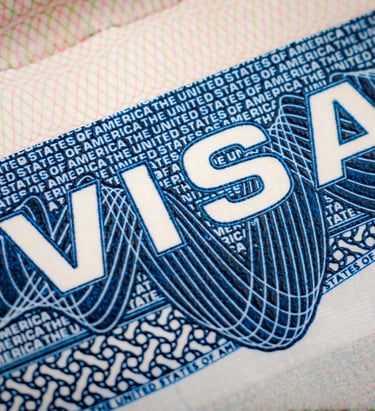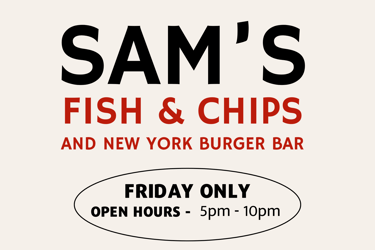US Visa Services for Thai and International Citizens


Want to Visit the US?
The US is notoriously strict when giving out visas, especially to Thai passport holders, so if you’re planning to visit the United States for leisure, family, or business, or you’re pursuing education at an American institution, choosing the right visa type and preparing your application carefully is vital to ensure you get your visa.
I myself am a dual Thai-American citizen, so I know the process well. I have assisted hundreds of Thai citizens and individuals from around the world with US visa applications, mainly focusing on visitor (B-1/B-2) visas, student (F-1/M-1) visas, and work and business visas. I’ll guide you through every step to ensure a smooth and stress-free process.
Types of US Visas for Travel and Study
B1/B2 Visitor Visa
Purpose: For short-term travel, including tourism, family visits, or attending business conferences.
Validity: Typically, stays are limited to 6 months per entry.
Who Needs It: Anyone visiting the US temporarily for leisure or non-permanent business purposes.
Eligibility: Proof of strong ties to your home country (job, family, property).
Ability to fund your trip without working in the US.
F1 Student Visa
Purpose: For students enrolling in US academic programs or English language courses.
Validity: Depends on the duration of your academic program.
Who Needs It: Students accepted by a US-accredited educational institution, including universities and language schools.
Eligibility:
Acceptance to a SEVP-approved school in the US.
Proof of financial support for tuition and living expenses.
English proficiency (usually demonstrated through TOEFL or IELTS scores).
J1 Exchange Visitor Visa
Purpose: For exchange programs, including internships, training, or cultural exchange opportunities.
Validity: Matches the length of the program, plus a grace period of 30 days.
Who Needs It: Exchange visitors, au pairs, and trainees participating in approved US-based programs.
Eligibility:
Acceptance into an approved exchange program.
Proof of sufficient funding or sponsorship.
Intent to return home after the program ends.
H-1B Visa
Purpose: For highly skilled professionals employed in specialized occupations in the United States.
Validity: Initially valid for 3 years, with the possibility of extension up to 6 years.
Who Needs It: Individuals with expertise in fields such as IT, engineering, healthcare, finance, or other specialized areas.
Eligibility:
US Job Offer: Must have a job offer from a US-based employer.
Specialized Occupation: The role must require a Bachelor’s degree or higher in a specific field.
Employer Sponsorship: Employer must file a Labor Condition Application (LCA) and H-1B petition.
L-1 Visa
Purpose: For intra-company transfers of executives, managers, or employees with specialized knowledge to a US office.
Validity:
L-1A (executives and managers): Up to 1 year initially, renewable up to 7 years.
L-1B (specialized knowledge employees): Up to 1 year initially, renewable up to 5 years.
Who Needs It: Employees of a multinational company transferring to a US branch, affiliate, or subsidiary.
Eligibility:
Employment History: Must have worked for the company abroad for at least 1 year in the past 3 years.
Position Requirement: Role must qualify as managerial, executive, or involve specialized knowledge.
Company Relationship: Employer must demonstrate a qualifying relationship between the foreign and US entities.
E-2 Visa
Purpose: For investors managing a business in the United States.
Validity: Initially valid for 2 years, with unlimited renewals as long as the business is operational.
Who Needs It: Entrepreneurs or investors from treaty countries (Thailand qualifies) who want to establish or invest in a US business.
Eligibility:
Substantial Investment: Must make a significant financial investment in a US business.
Active Role: Must actively manage the business operations.
Ownership: Must own at least 50% of the business or have significant control.
Non-Immigrant Intent: Must intend to leave the US when the visa expires or the business closes.
What You’ll Need to Apply
For Visitor Visas (B1/B2):
Passport: Valid for at least six months beyond your intended stay.
DS-160 Form Confirmation: Completed online application.
Visa Fee Receipt: Proof of payment for the application fee.
Travel Itinerary: Including flight bookings and accommodation details.
Proof of Financial Stability: Bank statements, employment letter, or sponsorship proof.
Ties to Your Home Country: Evidence such as property ownership, family ties, or employment contracts to show intent to return.
For Student Visas (F1):
I-20 Form: Issued by your US school or university after acceptance.
SEVIS Fee Receipt: Proof of payment for the Student and Exchange Visitor Information System.
Educational Documents: Transcripts, diplomas, and test scores.
Proof of Financial Support: Bank statements or sponsorship letters proving you can cover tuition and living expenses.
For Exchange Visitor Visas (J1):
DS-2019 Form: Provided by your program sponsor.
SEVIS Fee Receipt: Confirmation of payment.
Program Details: Invitation or acceptance letter outlining your exchange program.
Financial Proof: To cover the duration of your stay.
Work and Business Visas (H-1B, L-1, E-2):
Employment contract, offer letter, or transfer documents (H-1B, L-1).
Investment proof and business plan (E-2).
Supporting evidence of qualifications or experience.
Tips for a Successful Visa Application
Be Honest: Clearly explain your travel plans and provide accurate information.
Prepare for the Interview: Practice answering common questions about your trip or education plans.
Show Strong Ties to Your Home Country: Demonstrate that you have compelling reasons to return after your visit or studies.
Organize Your Documents: Ensure all paperwork is complete, accurate, and easy to access during your interview.
Common Reasons for Visa Denials
Insufficient Ties to Home Country
Not proving strong connections to your home country.
Incomplete Paperwork
Forms and supporting documents not being accurate or complete.
Unclear Purpose of Visit
Vague, evasive answers, no visible reason to go to the USA.
How I Can Help
Navigating the US visa process can be daunting, but I offer personalized support to ensure your success:
Visa Consultation: Determine the best visa type for your needs.
Document Review: Ensure all forms and supporting documents meet US Embassy standards.
Interview Preparation: Provide tips and mock interviews to boost your confidence.
Application Submission: Guide you through every step, from completing forms to attending the interview.
Let's get started!
📅 Planning your journey to the United States? Contact me to leverage my Thai-American expertise for your visa application. Together, we'll create a strong case and prepare you thoroughly for your visa interview.
FAQs: US Visa
1. How long does it take to process a US visa?
Processing times vary, but most applications take a few weeks. Expedited services may be available for emergencies.
2. Can I extend my stay in the US on a visitor visa?
Yes, you can apply for an extension before your visa expires, provided you meet the criteria, and you give at least 45 days' notice.
3. Can I work in the US on a tourist visa?
No, working on a tourist visa is strictly prohibited and can result in deportation and a ban.
4. What happens if my visa application is denied?
You can reapply after addressing the reasons for the denial, and I can help strengthen your application.
Come and Visit Me!
I'm located in Bangkok, a 5 minute walk from Chong Nonsi BTS and 10 minutes from Sala Daeng BTS / MRT in the Si Lom / Bang Rak area, give me a call or an email to arrange a meeting in my home office over a coffee (or even Fish & Chips)!
Address
146 Convent, Soi Pipat 2, Si Lom, Bangkok 10500, Thailand
Other Contact Methods
Hours
9 AM - 4:30 PM


© 2024 Sam Atlanta. All Rights Reserved.
Sam's Fish & Chips
As well as being your Visa Agent, my wife and I also run a seasonal restaurant from our home, serving traditional British-style Fish & Chips and burgers. We are open every Friday and are one of the few places that use Cod. Please feel free to drop by for some food or even just for a chat.


